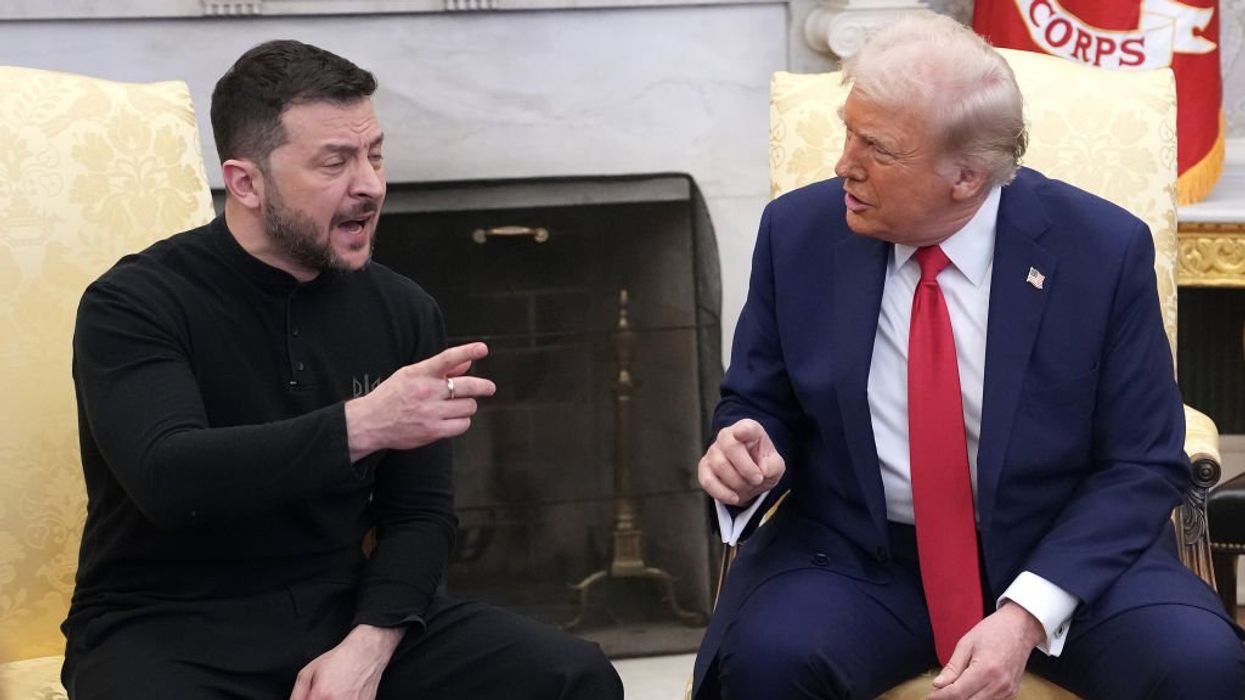Since the end of World War II, American leaders - left, right, and center - have upheld certain irrevocable principles. Among them: unwavering support for democracy, respect for allies, and leadership on the world stage.
On Friday, those principles fell in disgrace.
In a shameful and embarrassing display at the White House, President Donald Trump mimicked President Volodymyr Zelensky of Ukraine. It was shameful and embarrassing.
President Trump and Vice President JD Vance accused Zelenskyy of being “disrespectful” during a confrontational visit to the White House on Friday that was on the edge of a shouting match. At one point, Trump said the Ukrainian president was “gambling with World War III,” and at the end of the meeting, as tensions rose, Trump said to Zelenskyy, regarding Russia talks: “You either make a deal, or we are out.”
This column is very difficult for me to write. As the co-publisher of a non-partisan daily news platform, I strive to be objective. On February 20th, co-publisher Kristina Becvar and I wrote a column in The Fulcrum entitled “Do Trump’s Goals Justify his Words and Actions.”
In that column, we addressed a challenge we face as a non-partisan publication.
“Our challenge as a publication, dedicated to keeping our readers informed so we can repair our democracy and make it live and work in our everyday lives, is not to be overly reactive or partisan. At the same time, we must not ignore the dangers of the administration's degrading, hostile, and accusatory language and actions when they occur, while also acknowledging inappropriate responses when they occur.”
We went on to say:
“It is easy to be reactive to statements like this. It is, perhaps, even imperative that The Fulcrum calls out such dangerous language used by Trump and Musk and do the same should members of Congress from the other party make similar comments. However, strongly admonishing abhorrent words or actions while, at the same time, acknowledging some degree of truth in the underlying action are not mutually exclusive. Finding where that truth remains is one of our key objectives.”
Today is one of those days in which it is imperative that we as a people do not ignore uncivil behavior !!!!
This week, Hugo Balta, executive editor of The Fulcrum, wrote a columnstating, "in an era of increasing political polarization, the need for civility in politics has never been greater. Engaging in constructive and respectful dialogue is essential for maintaining a healthy democracy, fostering unity, and ensuring that governments function effectively. ”
What we witnessed in the White House was the antithesis of the constructive and respectful dialogue that Balta spoke of.
For generations, U.S. foreign policy has been built on key pillars. They have not always been applied perfectly but have served as guiding principles for leaders regardless of party affiliation. Since World War II, the U.S. has:
- Stood as a strong advocate for democratic governance and the protection of human rights around the world.
- Made the protection of the safety and security of the United States and its allies a top priority, including efforts to combat terrorism, prevent the proliferation of weapons of mass destruction, and address cyber threats.
- Worked with other nations and international organizations to address global challenges such as climate change, pandemics, and regional conflicts.
- Maintained strong alliances and partnerships, such as those with NATO and other allies, to ensure collective security and mutual defense.
- Used diplomatic efforts and foreign aid as key tools in building relationships, preventing conflicts, and fostering development in other countries.
This is all crumbling before our eyes, and I am deeply concerned and saddened.
Strength and winning are important for the United States. President Trump was elected to solve the serious problems facing Americans, and I respect his efforts to do so.
But what are we as a nation if everything is about winning? What are we as a nation if everything is a negotiation? Leadership without respect is dangerous.
Winning with honor is not a new thought. Albert Einstein said: "The world will not be destroyed by those who do evil, but by those who watch them without doing anything.” Mahatma Gandhi echoed the sentiment: "The greatness of a nation can be judged by the way its weakest members are treated."
As the world's most powerful nation, we will not be judged by how we throw our muscle and power around. Ultimately, we will be judged by how we respect all people and all nations by fostering goodwill, cooperation, and mutual growth.
The fifth President of the United States, James Monroe, sums up my feelings on this very sad day for me.
"National honor is national property of the highest value. The sentiment in the mind of every citizen is national strength. It ought, therefore to be cherished."
Today, national honor was nowhere to be found in the White House.
David Nevins is co-publisher of The Fulcrum and co-founder and board chairman of the Bridge Alliance Education Fund.


















 "On the Frontlines of Democracy" by Nonprofit Vote,
"On the Frontlines of Democracy" by Nonprofit Vote,

Trump & Hegseth gave Mark Kelly a huge 2028 gift